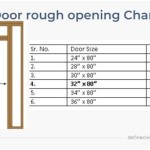What Degree Should You Get for Interior Design?
Embarking into the captivating world of interior design requires more than just an eye for aesthetics and a passion for creating beautiful spaces. With the industry becoming increasingly competitive, obtaining a formal education in interior design has become essential for those aspiring to succeed in this rewarding field.
To guide you in your educational journey, here's an in-depth exploration of the different degrees available in interior design, along with their benefits and career prospects:
1. Associate's Degree in Interior Design
An associate's degree in interior design provides a solid foundation in the fundamentals of the profession. This two-year program typically covers:
- Color theory and principles
- Space planning
- Furniture and material selection
- Lighting
- Basic CAD (Computer-Aided Design) software
An associate's degree prepares graduates for entry-level positions as interior design assistants or junior designers. With experience and additional training, they can advance to higher-level roles.
2. Bachelor's Degree in Interior Design
A bachelor's degree in interior design is the most common and comprehensive educational path for aspiring interior designers. This four-year program builds upon the foundation of an associate's degree and delves deeper into:
- Advanced space planning and layout
- Sustainable design principles
- Project management and coordination
- History of interior design and architecture
- Professional practice and ethics
Graduates with a bachelor's degree qualify for a wide range of job opportunities, including interior designer, space planner, and project manager. They may also pursue advanced degrees like master's or doctorates to further their careers.
3. Master's Degree in Interior Design
A master's degree in interior design is an advanced degree that typically takes one to two years to complete. It is designed for individuals with a bachelor's degree in interior design or a related field who wish to specialize in a particular area, such as:
- Sustainable design
- Healthcare design
- Commercial interior design
Graduates with a master's degree are highly sought after for leadership positions in the interior design industry. They may work as design principals, creative directors, or design educators.
Conclusion
Choosing the right degree for interior design depends on your career aspirations and the level of knowledge and skills you wish to acquire. An associate's degree provides a solid foundation, while a bachelor's degree is the most common path for professional interior designers. A master's degree allows for specialization and advanced career opportunities. Ultimately, the best way to determine the right degree for you is to research the different programs, talk to current students and professionals in the field, and consider your own interests and goals.

How To Become An Interior Designer Insights Archive Fairfield University News

Interior Design Degree Programs

Do You Need A Degree To Be An Interior Designer Design School By Alycia Wicker

How To Learn Interior Design

Interior Design Anne Arundel Community College

What Is An Interior Designing Degree Degreequery Com

Quick Read How Important Is An Interior Design Degree

Do You Need A License To Become An Interior Designer

Interior Design Associate Degree Program Designer Gateway Technical College

Bachelor Of Science In Interior Design Bsid
Related Posts








